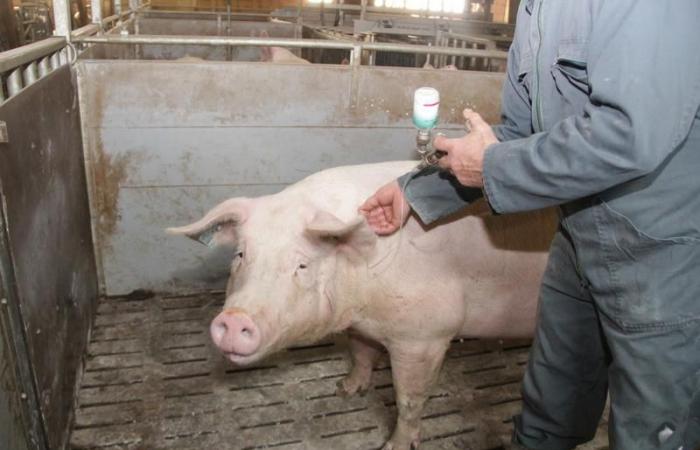An Anses study carried out under experimental conditions concludes that vaccination of piglets at five and eight weeks of age with Respiporc Flu3 from the Ceva Santé Animale laboratory (the only laboratory offering two influenza vaccines in France) does not reduce infections as much. clinical signs induced by the infection of H1avN2 (the “Danish” strain) than by that of H1avN1.
Read also: “We have mastered the clinical signs of swine flu”
“Vaccination reduces, but does not inhibit the excretion of H1avN2, contrary to what is observed for H1avN1”completes Agnès Jardin, from Ceva Animal Health. Furthermore, ANSES has noted little or no production of post-vaccination antibodies capable of neutralizing the H1avN2 virus.
Less coughing and sneezing
« However, in this study, the number of coughs and sneezes counted in the group of vaccinated piglets on the days following contamination with the virus was significantly lower than the group of unvaccinated piglets. », points out Agnès Jardin. Indeed, the day after infection, the researchers counted only one cough and eight sneezes in fifteen minutes in the vaccinated group, compared to forty-two coughs and twenty-one sneezes in the unvaccinated group. To confirm her statements, the veterinarian also relies on a field study carried out in 2020 and 2021 by the Ceva Animal Health laboratory on fifty farms. This study highlights the positive effect of the Respiporc Flu3 vaccine on clinical signs linked to infection with the H1avN2 virus: “ We calculated that in unvaccinated farms, the risk of breeding pigs becoming ill is 12.2 times higher than in vaccinated farms. », she concludes.
These two studies were communicated in 2023 to the ESPHM (European Symposium of Porcine Health Management).
Health






